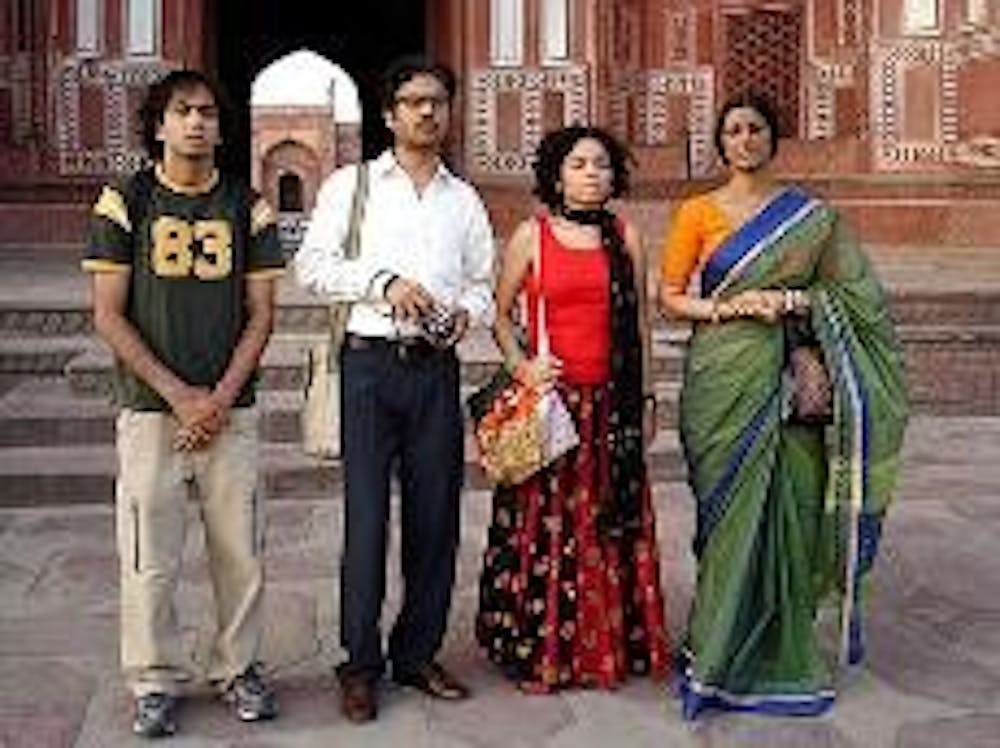Adapting author Jhumpa Lahiri's "The Namesake" for the screen was no easy task. The novel weaves together two lifetime narratives: one about an arranged-marriage Indian immigrant couple and one about the trials of their U.S.-born children. Director Mira Nair ("Monsoon Wedding," "Vanity Fair") rose to the task, cut the fat and put to screen a powerful film.
The story is universal, no matter the viewer's background.
"All of us leave a place for another place in some way," Nair said. "['The Namesake'] is not some dreadfully boring, respectful documentary on how Indians live."
The film speaks especially to second-generation immigrants in its depiction of the conflict between family heritage and U.S. culture and society. But it can also be relatable on other levels.
"It was in the spirit of mourning that I had picked up Jhumpa's novel for a plane ride back to India," Nair said. "I was just stunned to find that there was someone in the universe who understood exactly what I was going through at the time."
Creating a film adaptation is "always a sifting of what you want and what you can do without," Nair said. The narrative begins when Ashoke Ganguli and his new bride Ashima move to United States, and ends when their U.S.-born son Gogol is in his late twenties. In order to keep "The Namesake" to two hours, Nair emphasized the love story of Ashoke and Ashima and removed most of Gogol's high school and college years. Those who enjoyed the book won't miss the deletions, however.
Nair worked with Lahiri after the script was finished to make sure the author had power to voice objections and other opinions about the film's direction. Nair also cast Lahiri and more than 20 family members as the main characters' relatives.
"The Namesake" is also impressive in its imagery. The film takes viewers into a crowded Indian train station, out to the expansive Taj Mahal and through Manhattan and the New York City suburbs.
Bollywood actress Tabu is superb as Ashima, masterfully transforming the new bride who longs for home into the selfless, empty-nest mother who's learned to accept her present. Irrfan Khan is almost equally moving as Ashoke, and former "Real World" star Jacinda Barrett brings vulnerability to Gogol's otherwise self-absorbed all-American girlfriend Maxine.
"The Namesake" is significant also because it stars Kal Penn in his first major serious role. Penn, best known for his work in "Van Wilder" and "Harold and Kumar Go to White Castle," gives life and energy to Gogol, a young Indian American tormented by his heritage.
Penn might not have been cast in the film at all if not for Nair's 15-year-old son, who introduced her to the young actor, the director said. The boy showed his mother videos of Penn and every night reminded her that she should cast him.
"There was a lot of domestic pressure," Nair said.
Penn fought for the role unaware of the teenager's wishes. Penn wrote to Nair and told her he was an actor because of her film "Mississippi Marsala," which made him realize at age 8 that people like him could be on-screen, she said. Then he flew in and had an excellent audition.
"He was the authentic Gogol," Nair said. "He was someone who lived his life just like that."
His comic versatility was also a plus, she said, because it let her cast him as the adolescent and adult Gogol.
"Also I really, actively, shamelessly want to be a populist filmmaker," she said. "I wanted 15-year-olds to come to this movie."
As they should. "The Namesake" is an adaptation not to be missed.





